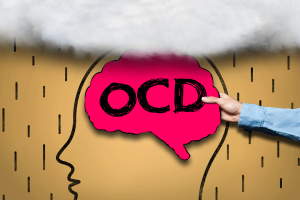Introduction:
Obsessive-Compulsive Disorder (OCD) is a mental health condition characterized by persistent, unwanted thoughts (obsessions) and repetitive behaviors (compulsions). For those experiencing OCD, recovery is not only possible but also highly achievable with the right strategies and support systems. This guide outlines 7 proven steps for OCD recovery, helping individuals regain control of their lives.

Understanding OCD and Its Impact
OCD affects millions worldwide, causing significant distress and impairing daily functioning. Recognizing the symptoms is the first step toward OCD recovery. Some common signs include:
- Intrusive, recurring thoughts causing anxiety.
- Compulsions, such as excessive handwashing or checking behaviors.
- A persistent feeling of incompleteness or fear of harm.
By seeking support and implementing evidence-based strategies, individuals can embark on the path to OCD recovery and work towards a fulfilling life.
For individuals seeking treatment for OCD, consider consulting qualified mental health professionals such as:
1. Acknowledge and Accept Your Condition
The first step to recovery is understanding and accepting that OCD is a medical condition, not a personal flaw. Self-compassion is crucial in this journey. Many people find solace in connecting with support groups or reading about others’ experiences with OCD.
For more information, visit the National Institute of Mental Health (NIMH).
2. Seek Professional Therapy
One of the most effective treatments for OCD Recovery is therapy, particularly Cognitive Behavioral Therapy (CBT). A specialized form of CBT called Exposure and Response Prevention (ERP) has been shown to significantly reduce OCD symptoms. ERP involves gradually exposing yourself to your fears without engaging in compulsive behaviors.
Learn more about CBT and ERP at the Centers for Disease Control and Prevention (CDC).

3. Develop Healthy Coping Mechanisms
Stress and anxiety can exacerbate OCD symptoms, making it essential to cultivate healthy coping mechanisms. Strategies such as:
- Mindfulness and Meditation: Helps to focus on the present and reduce anxiety.
- Regular Exercise: Promotes mental well-being by releasing endorphins.
- Time Management: Helps structure your day and reduce stress.
These habits create a positive environment for recovery and empower individuals to manage OCD effectively.
4. Educate Yourself and Loved Ones
Understanding OCD is empowering for both individuals and their families. Education dispels myths and fosters empathy. Encourage family members to learn about OCD and how they can provide constructive support without reinforcing compulsive behaviors.
Access detailed resources through MentalHealth.gov.
5. Establish a Strong Support Network
Recovery is not a solitary process. Surrounding yourself with a supportive network of friends, family, and professionals can provide the encouragement needed to persevere. Joining OCD-specific support groups, either online or offline, can help share experiences and practical tips.
For support group options, visit the Substance Abuse and Mental Health Services Administration (SAMHSA).
6. Prioritize a Balanced Lifestyle
A balanced lifestyle promotes mental wellness and aids in OCD recovery. Key elements include:
- Sleep Hygiene: Aim for 7-9 hours of sleep to reduce stress.
- Nutrition: A healthy diet supports overall brain health.
- Limit Screen Time: Excessive screen time can heighten anxiety.
Small changes in daily habits can yield significant improvements over time.
7. Celebrate Progress and Practice Patience
OCD recovery is not a linear process; it involves ups and downs. Celebrate small victories and remain patient with yourself. Understand that setbacks are a natural part of progress, and every step forward, no matter how small, is worth acknowledging.

Conclusion
OCD recovery requires dedication, the right strategies, and support from professionals and loved ones. By following these seven proven steps, individuals can achieve significant progress and regain control over their lives. Remember, you are not alone, and help is always available.
For further resources and guidance, explore the National Institute on Aging (NIA).